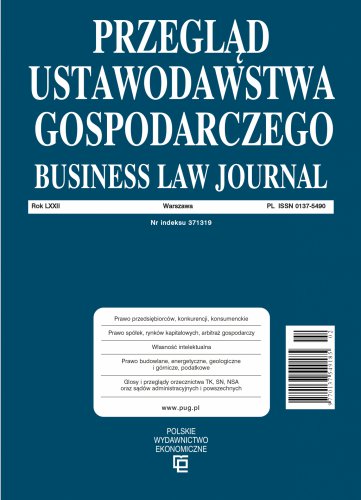Journal of Business Law 3/2020
ISSN: 0137-5490
Pages: 40
Publication date: 2020
Place publication: Warszawa
Binding: paperback
Format: A4
Publication date: 2020
Place publication: Warszawa
Binding: paperback
Format: A4
DOI: 10.33226/0137-5490.2020.3.1
JEL: K2 (artykuł w języku angielskim)
DOI: 0000-0002-8838-7806
JEL: K34
DOI: 0000000236366456
JEL: K12, K15, K19
DOI: 10.33226/0137-5490.2020.3.4
JEL: K34
DOI: 10.33226/0137-5490.2020.3.5
JEL: K12, K22, K23
| Odbiór osobisty | 0 € |
| Kurier FedEX | 4 € |
| Inpost Paczkomaty | 4 € |
| Kurier Inpost | 4 € |
| Free delivery in Reader's Club | from 47 € |

